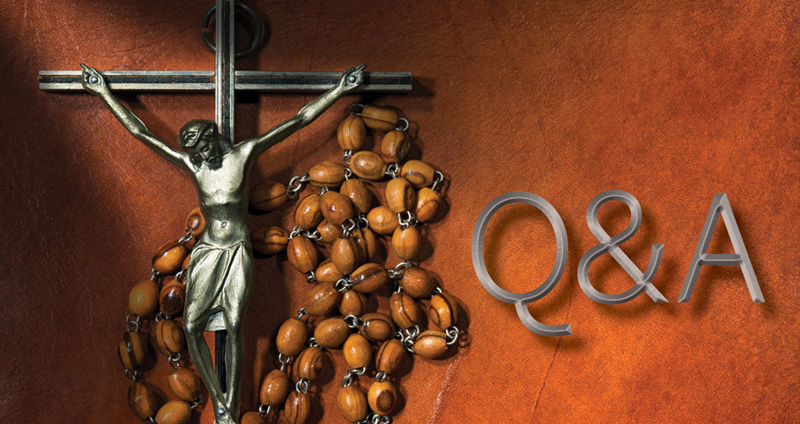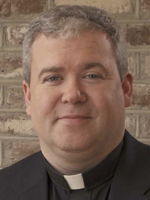
Q: If we believe that the True Presence of Jesus is in the Blessed Sacrament in the tabernacle all the time, why do we have Solemn Exposition? Isn’t Jesus in the tabernacle enough? (Laurens, SC)
A: As you indicate, as Catholics, we know that Jesus is truly present in the Eucharist. He attested to this truth in the famous Bread of Life Discourse (John 6:22-71). After the Mass, any remaining Eucharistic hosts are reserved in the tabernacle and the Lord remains present to us. It is a noble custom to periodically stop in a Catholic Church and make a visit to the Eucharist. The Lord is as present there as at any other time.
And so, your question stands out. If the Lord is present in the tabernacle, what’s the point of Solemn Exposition? The answer is a simple, human one. It pertains to proximity and is less about His presence and more about our heart. It isn’t that Jesus is more present in Solemn Adoration as much as we can see and feel closer to Him.
An example might help: Why would people want to sit next to each other on a couch when they’re already in a living room together? Obviously because they want to be closer and have a better environment for conversation and interaction. This same reality applies to Solemn Adoration. It allows us to be closer to the Lord and helps us to pray more deeply and in a more focused manner.
I encourage anyone to make a Eucharistic visit and, if they are able, to participate in Solemn Adoration.
Incidentally, as we explore ways to reach out to the Nones, who are young adults with a belief in God but who absent themselves from organized religion, we see that Adoration is appealing to them.
While the Mass looks overly formal to them, Adoration is attractive because of its relative simplicity and looseness in terms of prayer. This observation shows us another reason why Adoration is so important and how it can help all of us draw closer to the Lord.
Q: What are we called to do with people who do not ask for forgiveness and feel as if they’ve done nothing wrong? (Greenville, SC)
A: Your question indicates a real desire to be a person of mercy. As Christians, this is our way of life. The challenge of forgiving someone who has hurt us or a loved one is hard enough when the one who caused the hurt acknowledges it, but mercy can seem impossible when they deny the harm. This sense of confusion is understandable. And it’s an occasion that calls for deep prayer and a cooperation with God’s grace so we have the strength to forgive, or have a desire to eventually forgive.
Any specifics relating to this question depend on the circumstances. The ideal would be a sincere one-on-one conversation and an explanation of the offense. If this doesn’t work, then maybe another meeting with a third person.
If this still does not work, then there can be an appeal to the moral authority of the Church.
The process is given by the Lord Jesus (cf. Matthew 18:15-20). If none of this works, then the person must be commended to God and forgiveness is given so that we can be free, and the person is free for the possibility of future conversion.
Father Jeffrey Kirby is administrator of Our Lady of Grace Church in Lancaster. Email him your questions at askfrkirby@gmail.com.

